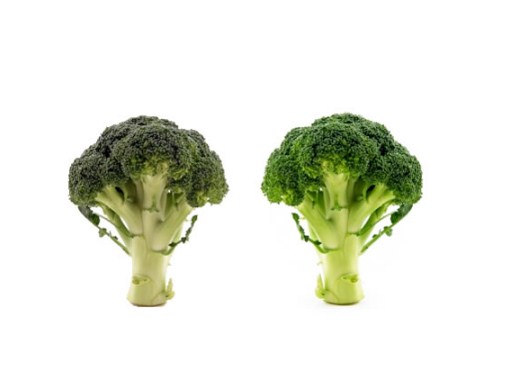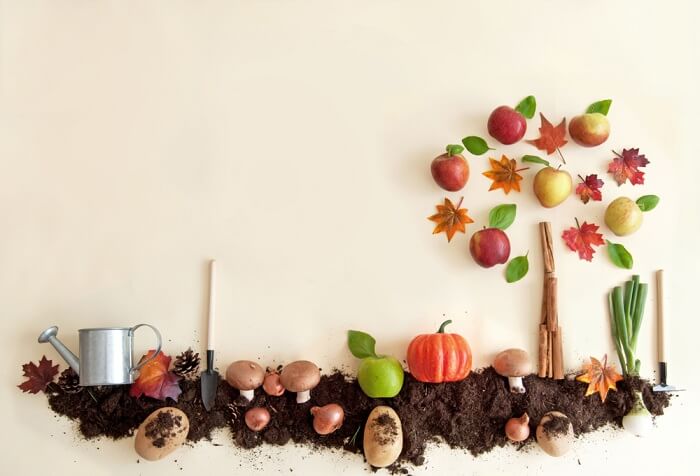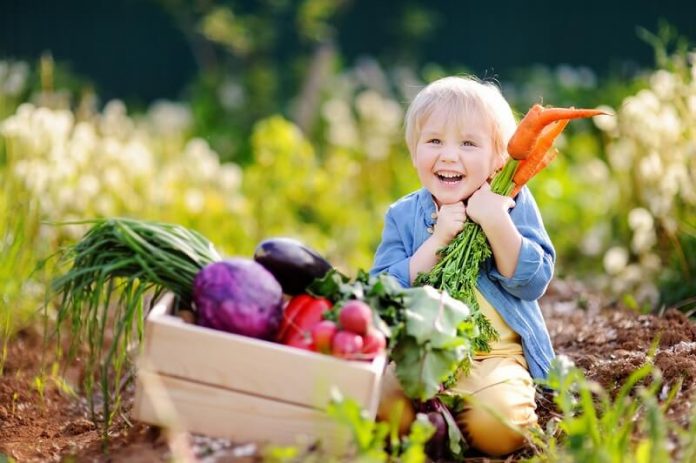Does Seasonality affect Nutrient Content?
I was recently asked this question: Is there a nutritional difference in foods when they are in a season vs. out of season? The short answer is yes — foods are more nutritional when in season. More foods need to be tested until we have exact details on which foods differ in what kind of nutrients and to what extent. However, I believe that in this case, the details do not matter that much. The important question is: “Should I eat seasonally because of this? the facts of eating with the seasons? what are the health benefits of eating seasonally” Let’s look at some things that we do know and figure out the answer to this question.

Looking at the facts of eating with the seasons
The nutritional difference between seasonal and non-seasonal produce is due to two factors, both of which we will now examine in detail.
1. Out of season food is often not local
Eating with the seasons means eating what is in season around you —it is always “summer” somewhere! Therefore eating seasonally generally means eating (more) locally.
Produce starts to lose nutrients and flavor as soon as it is harvested, so when food has to travel hundreds of miles before arriving at the supermarket, a lot of nutrients and flavor are lost.
Furthermore, since manufacturers want the food to look fresh and ripe when it hits the shelves, produce is often harvested too early and then later sprayed with plant hormones to speed up ripening.
Since the ripening occurs so quickly and often in some crowded box, the plant cannot accumulate as many nutrients and as much flavor as it would if it slowly ripened on its own. This explains why a strawberry can have a beautiful deep red color but taste like nothing.
Useful information
Eating locally keeps business in the community and helps local farmers, who are generally less aggressive with their use of chemicals and protect biodiversity by producing a larger variety of plants. Try a farmer’s market or sign up for a CSA program in order to get fresher and tastier produce!
A study on Vitamin C content in broccoli
In this study researchers compared the Vitamin C content of supermarket broccoli in May (in season) and supermarket broccoli in the Fall (shipped from another country).
- The result: the out-of-season broccoli had only half the vitamin C of the seasonal broccoli. They also looked at the vitamin C difference between organic and conventionally grown broccoli, but there was not a statistically significant difference between the two.
Vitamin C is less stable than other vitamins
It is important to note that vit C is a particularly fragile molecule. It breaks down much more easily than all other vitamins.
Therefore very likely that the content of other vitamins is not affected when eaten out of season as much as that of vit C.
Minerals, in general, are more stable than vitamins and therefore degrade even less over time. The mineral content of produce is mostly determined by the soil quality in which the food was grown.
However, the nutritional value of food does not only depend on vitamin and mineral content. There are hundreds of different phytonutrients (more are being discovered all the time), some of which are also affected by seasonality.
What are phytonutrients?
(phyto=plant) Phytonutrients are nutrients that occur naturally in plants, but are not essential nutrients such as the established vitamins and minerals. This means they are not needed for survival. However, there is strong evidence that many of them offer great health benefits (cancer-protection, anti-aging, bone health etc.) This is one reason why popping a vitamin pill cannot replace eating fruits, vegetables, whole grains and legumes.
2. Weather differences can affect nutrients directly
Plants create phytonutrients in order to protect themselves from damaging UV-rays (sun), pests, and pollution. Since our own biochemistry is not all that different from a plant’s, many phytonutrients can protect us as well.
In many cases, radiation from sunlight acts as the trigger that puts the biochemical processes in motion which ultimately creates these phytonutrients, similar to when your skin produces more melanin (brown pigment) in response to sunlight in order to protect itself.
Chilling is another possible environmental trigger that positively affects phytonutrient content in plants.
Since the amount of sunlight (and other possible triggers) is tightly linked to different seasons, phytonutrient content is too.
A lot of phytonutrients are responsible for the color and flavor of food, so it follows that they get compromised as well.
If the taste is affected, nutrition most likely is too
Even without any direct evidence, we could have arrived at a similar conclusion. You only have to compare the flavor of fresh vs. seasonal tomato and you know they are different.
As stated above, both flavor and nutritional content come down to a plant’s biochemistry.
Biological systems are so complex and interconnected that when a chemical difference causes a change in flavor, it likely also changes the nutritional value.
Discussing the implications of eating with the seasons

Should you eat more seasonally because of this?
While there are definitely many good reasons to eat more seasonally (some are discussed below), I am not sure I would count nutritional differences as one of the main ones.
Not only are most nutrients only minimally affected, but there are still a lot of benefits in eating fruit and vegetables, even when they are out of season.
Produce contains a lot of fiber (healthy and filling), is mostly very low-calorie and even with some nutrient loss still contains a lot more nutrients than most foods.
Generally, it is always better to eat produce out of season than to not eat it at all! And quite frankly, most people have much more pressing dietary problems than not getting enough nutrients because the produce they eat is out of the seasons…
You can help nutrient loss
If you are concerned about nutrient loss, start in your kitchen. The nutrient content of food is much more affected by the way you cook (process) than by any seasonal differences discovered so far.
In comparison: vitamin C in broccoli was reduced by 50% due to the difference in season, but it is possible to lose up to 80% of vitamin C by preparing broccoli incorrectly!
Also, food still loses nutrients even when in the fridge (rate is slowed down, however), so try to eat it sooner rather than later.
Want to know more?
If you want to learn more about how to prevent nutrient loss or how to prepare food in order to maximize flavor and nutrients, stay tuned for later posts! There is definitely a lot to be said on the subject.
The health benefits of eating more seasonally
There are definitely many health benefits to eating more seasonally beyond nutritional differences. First of all, produce is often cheaper when in season.
Also, there is absolutely no doubt that seasonal and fresh and healthy food tastes much better than what you usually find in supermarkets out of season.
This can definitely help some people to eat more produce. A friend of mine converted from a complete tomato hater to a tomato lover when he tried a ripe fresh tomato for the first time.
Focusing on the food that is available during each season also helps you to eat a wider variety of foods.
Every food has its very own nutrient composition (different phytonutrients) and eating different types of foods in seasons helps you reap a wide variety of health benefits.
A lot of people have their standard fruits and vegetables that they consume all year round. While this is certainly good, eating different types of vegetables and fruits is almost as important as eating them in the first place.
Want to try it?
Remember that the world is not black and white. Every step you take towards a better diet (no matter how small) is a great step!
Try a fruit or vegetable that you have never tried that is currently in season. Don’t expect to like everything right away, taste is mostly acquired. But chances are you will like it a lot more when it does not taste like cardboard.
Every season has amazing tasting food and I strongly believe that you should not eat things when they do not taste good.
Life is too short to not enjoy food! Of course, if you enjoy the wrong kinds of food… life is even shorter.
Special challenge
If you already eat a lot of produce, but want to eat a wider variety, try this challenge: Include at least one seasonal fruit or vegetable in your diet everyday. Make sure they are different ones on all days of the week. If you wonder eating what is in the seasons right now, check out this guides: Fruit chart and Vegetable chart. Have fun exploring!

